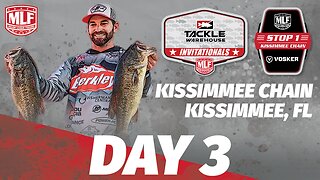Premium Only Content

RICO Suit Against Chiropractors
Allstate Effectively Alleges RICO Conspiracy by Chiropractors to Defraud Allstate
Post 4818
Allstate Effectively Alleges RICO Conspiracy by Chiropractors to Defraud Allstate
In Allstate Insurance Co. et al. v. Lint Chiropractic PC et al., No. 2:23-cv-10904, United States District Court, E.D. Michigan, Southern Division (May 30, 2024) Allstate brought a RICO case against chiropractors and conspiracies to defraud Allstate. Various Allstate insurers accused several medical and chiropractic clinics, their suppliers, and their managers of orchestrating a racketeering scheme to exploit Michigan's no-fault insurance law by generating and submitting hundreds of fraudulent medical bills for reimbursement.
In response to dueling motions for summary judgement the USDC concluded that Plaintiffs have sufficiently alleged their claims, but Defendants' counterclaims fall short of providing a factual or legal basis distinct from the original allegations. Defendants' motion to dismiss was denied and Plaintiffs' motion to dismiss was granted.
BACKGROUND
Robert Super, a chiropractor from Florida, exercises “dominion and control” over all units of a medical device called the Nervomatrix. The Nervomatrix is used to treat “trigger points” - painful areas of knotting or tightness in muscles. To do so, the Nervomatrix first scans for trigger points (TPII) and then treats them with electrical stimulation (“LINT”).
Super proliferated the fraudulent use of Nervomatrix machines at numerous medical clinics in Michigan. Super implemented a “predetermined protocol” mandating the use of Nervomatrix machines-regardless of medical necessity.
Defendants also billed for services not rendered-with Lint Chiropractic billing for treatments at some clinics before Nervomatrix machines were installed there, and Super billing during times that those clinics considered the machines abandoned because they had lost contact with him. Lint Chiropractic frequently used preprinted prescription forms with identical signatures, altering only the date and clinic address.
ANALYSIS
Plaintiffs allege violations of two provisions of the RICO statute. Plaintiffs have plausibly alleged claims under both provisions.
THE RICO ENTERPRISE
A RICO “enterprise” may include “any individual, partnership, corporation, association, or other legal entity, and any union or group of individuals associated in fact although not a legal entity.” [18 U.S.C. § 1961(4)]. This definition is intentionally broad, designed to stamp out corruption. Liability under 18 U.S.C. § 1962(c) requires that Defendants “participate” in the enterprise's conduct.
THE PARTICIPANTS
Lint Chiropractic Enterprise. Super owned and managed Lint Chiropractic and directed its staff's conduct. He installed Nervomatrix machines there and developed a predetermined protocol to direct patients toward unnecessary treatments, resulting in fraudulent billing.
MI Medical Enterprise. Super also owned and managed MI Medical, implementing the same fraudulent protocol used at Lint Chiropractic. Diagnostic conducted unnecessary tests on MI Medical patients to support these bills.
Supplies Plus Enterprise. Super managed Supplies Plus, deciding to write prescriptions for unnecessary DME and generating fraudulent bills.
Diagnostic Chiropractic Enterprise. Super managed Diagnostic Chiropractic, which billed for unnecessary tests arranged by Lint Chiropractic.
The USDC concluded that Plaintiffs sufficiently alleged the existence of each enterprise and how Defendants participated in the conduct of those enterprises.
Pattern of Racketeering Activity
To establish a pattern of racketeering activity, Plaintiffs must demonstrate that Defendants committed at least two predicate acts of racketeering within ten years. Plaintiffs allege that all the predicate acts of mail and wire fraud served the common purpose of inducing Plaintiffs to pay large sums for bogus medical bills. These allegations sufficiently demonstrate the necessary relationship among the acts.
Predicate Acts and Civil Rule 9(b)
Although fraud claims are subject to a heightened pleading standard, requiring plaintiffs to state with particularity the circumstances constituting fraud or mistake, the Allstate plaintiffs adequately alleged the fraudulent scheme, detailing how Defendants orchestrated a plan to defraud Plaintiffs with the Nervomatrix and fraudulent medical bills. Plaintiffs have pled their § 1962(c) fraud claims with sufficient particularity under Rule 9(b). Defendants' motion to dismiss on these grounds is denied.
RICO-Conspiracy Claim Under § 1962(d)
The key is not that each Defendant committed every act of fraud but that they conspired to achieve the fraudulent objectives of the enterprise.
MOTION TO DISMISS COUNTERCLAIMS
If Plaintiffs prevail on their fraud claims, it will necessarily mean that Counterclaimants are not entitled to the payments. Thus, the counterclaims serve no purpose. Accordingly, Defendants' Motion to Dismiss, was DENIED and it was ORDERED that Plaintiffs' Motion to Dismiss, was GRANTED.
ZALMA OPINION
The type of Fraud that Allstate used to base its RICO action is rampant as detailed in hundreds of health insurance fraud convictions reported in Zalma's Insurance Fraud Letter twice a month. The Allstate entities, as the victim of the fraud, is proactively fighting the frauds perpetrated against it by this RICO case that, when tried successfully, will take the profit out of the crime.
(c) 2024 Barry Zalma & ClaimSchool, Inc.
Please tell your friends and colleagues about this blog and the videos and let them subscribe to the blog and the videos.
Subscribe to my substack at https://barryzalma.substack.com/subscribe
Go to X @bzalma; Go to Newsbreak.com https://www.newsbreak.com/@c/1653419?s=01; Go to Barry Zalma videos at Rumble.com at https://rumble.com/c/c-262921; Go to Barry Zalma on YouTube- https://www.youtube.com/channel/UCysiZklEtxZsSF9DfC0Expg.
Go to the Insurance Claims Library – https://lnkd.in/gwEYk
-
 1:03:32
1:03:32
Winston Marshall
3 days ago"War On Children!" The DEMISE Of The West Starts With Schools - Katharine Birbalsingh
119K67 -
 48:02
48:02
Survive History
17 hours ago $8.11 earnedCould You Survive as a Sharpshooter in the Napoleonic Wars?
68.7K3 -
 12:03
12:03
Space Ice
18 hours agoSteven Seagal's China Salesman - Mike Tyson Knocks Him Out - Worst Movie Ever
50.8K19 -
 11:37
11:37
Degenerate Jay
18 hours ago $17.84 earnedJames Bond Needs Quality Over Quantity From Amazon
110K10 -
 15:23
15:23
Misha Petrov
18 hours agoTrad Wives & Girl Bosses Go to WAR!
81.7K52 -
 2:03:11
2:03:11
TheDozenPodcast
16 hours agoFootball villain fighting the state: Joey Barton
62.8K1 -
 13:18:50
13:18:50
Scottish Viking Gaming
19 hours ago💚Rumble :|: Sunday Funday :|: Smash the Blerps and Vape the Terpes
98.9K8 -
 1:45:00
1:45:00
RG_GerkClan
21 hours ago🔴LIVE Sunday Special - It's Time for World Domination - Civilization VII - Gerk Clan
90.6K28 -
 LIVE
LIVE
Major League Fishing
4 days agoLIVE Tackle Warehouse Invitationals, Stop 1, Day 3
102 watching -
 23:34
23:34
marcushouse
21 hours ago $16.24 earnedBREAKING: Starship Launch IMMINENT – But What’s This SURPRISE Flight 9 Plan?! 🚀🔥
125K18